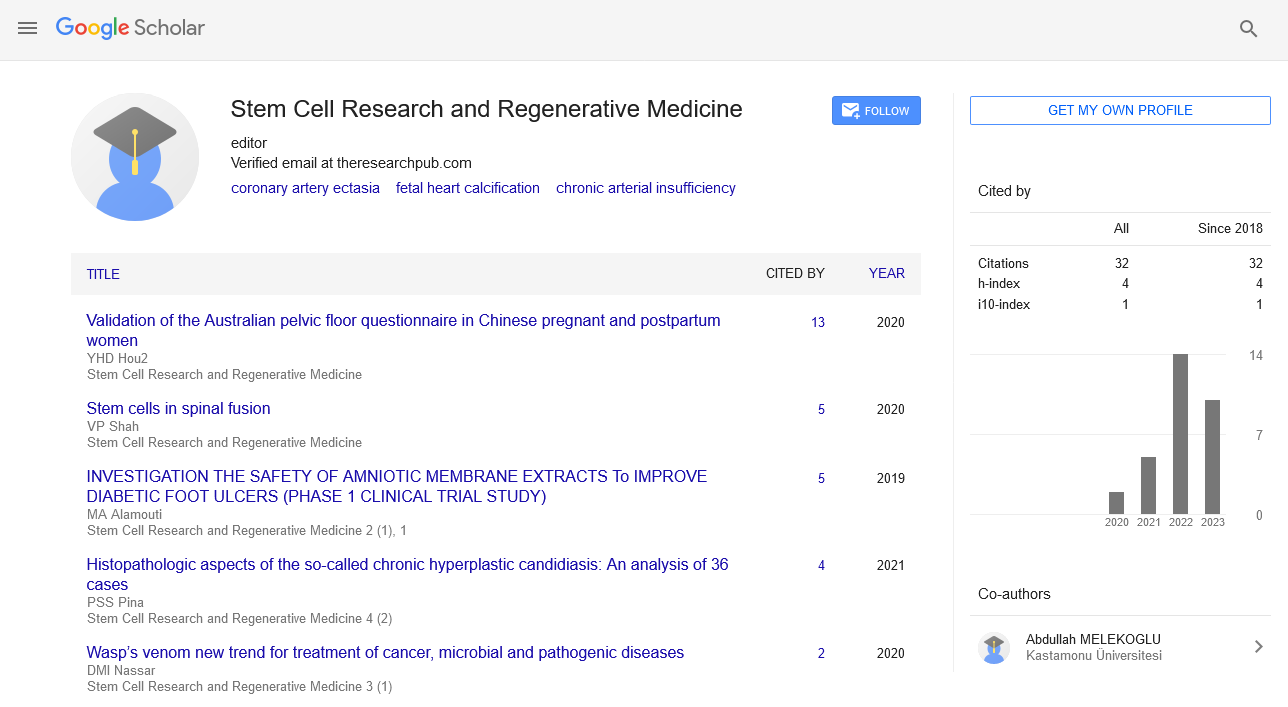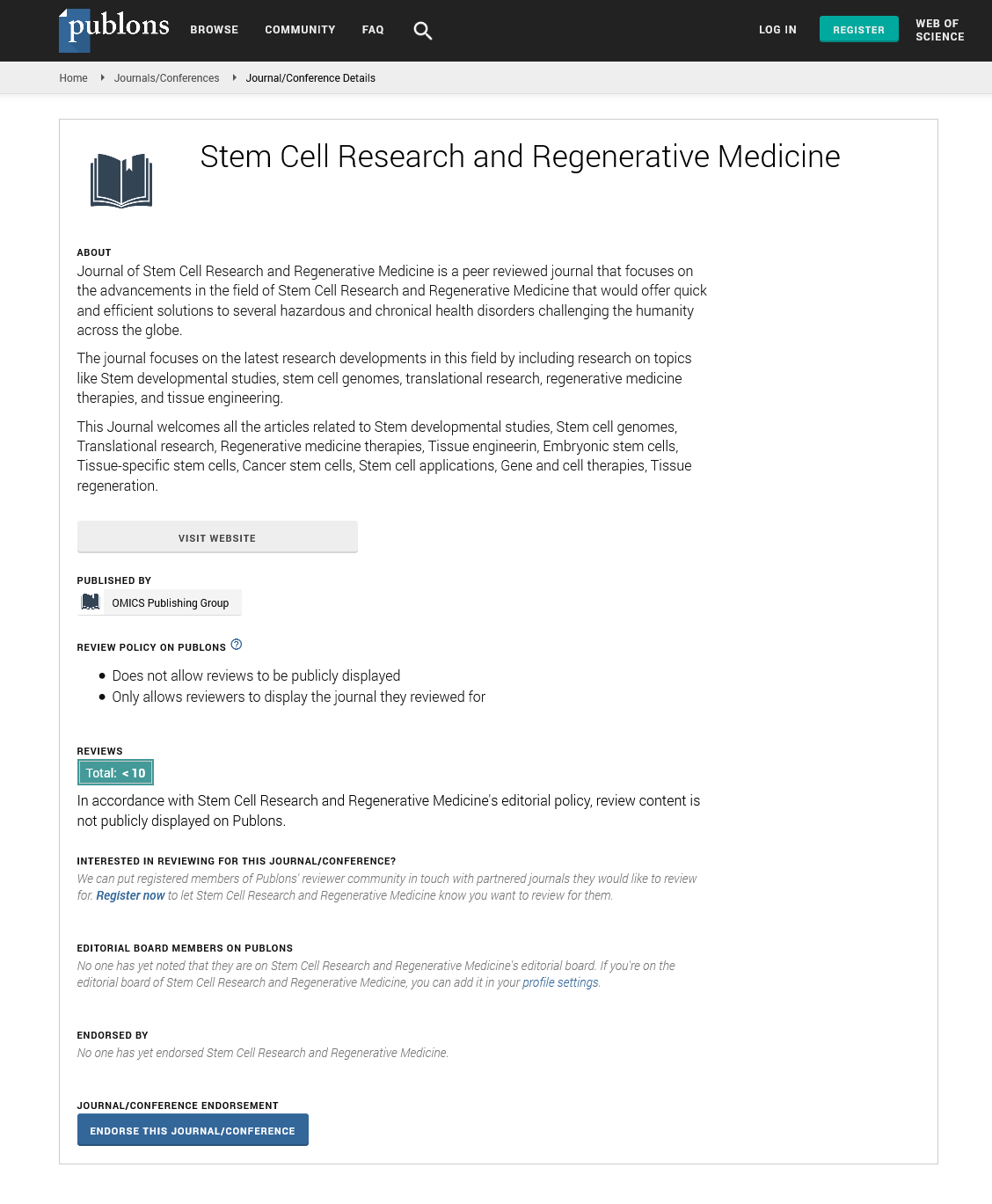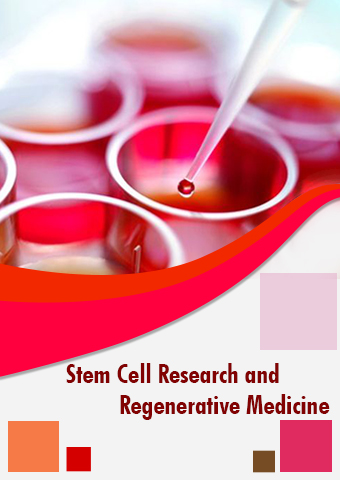Perspective - Stem Cell Research and Regenerative Medicine (2024) Volume 7, Issue 5
Stem Cell Tourism: An Ethical Dilemma
- Corresponding Author:
- Andrini Laura
Department of Medical Sciences,
Universidad Nacional de La Plata Buenos Aires,
Argentina
E-mail: landrini@gmail.com
Received: 01-Oct-2024, Manuscript No. SRRM-24-149852; Editor assigned: 03-Oct-2024, Pre QC No. SRRM-24-149852 (PQ); Reviewed: 17-Oct-2024, QC No. SRRM-24- 149852; Revised: 24-Oct-2024, Manuscript No. SRRM-24-149852 (R); Published: 31-Oct-2024, DOI: 10.37532/SRRM.2024.7(5).257-259
Introduction
Stem cell tourism has emerged as a rapidly growing global phenomenon, with patients traveling across borders to seek treatments that may not be available or approved in their home countries. This form of medical tourism is particularly appealing to those suffering from chronic or terminal illnesses, where conventional therapies have failed. Stem cell clinics around the world offer unproven treatments with promises of miracle cures for conditions ranging from Parkinson’s disease to spinal cord injuries. However, while stem cell tourism offers hope, it also raises significant ethical, medical, and regulatory concerns. This article examines the ethical dilemmas surrounding stem cell tourism and its impact on patients, healthcare systems, and the broader field of regenerative medicine.
Description
The allure of stem cell tourism
Stem cell tourism is driven by several key factors that make it attractive to patients desperate for alternative treatments.
Access to unapproved or experimental treatments
Many patients turn to stem cell tourism because their home countries have strict regulations governing the use of stem cell therapies. In countries like the United States and parts of Europe, stem cell treatments are tightly regulated, and only a few have been approved for use. In contrast, countries such as Mexico, China, and India offer treatments that are either experimental or not approved by their local regulatory bodies. These treatments are often marketed as revolutionary, offering hope to patients with conditions deemed incurable by conventional medicine.
Faster access to treatments
In highly regulated countries, clinical trials and approvals for new therapies can take years or even decades. For patients with terminal illnesses or degenerative diseases, waiting for treatments to be approved is simply not an option. Stem cell tourism offers faster access to experimental therapies, bypassing lengthy approval processes and offering a last resort for patients with few alternatives.
Aggressive marketing and high expectations
Stem cell clinics that cater to medical tourists often use aggressive marketing tactics to attract patients. These clinics promise life-changing results, even for conditions that have no known cure. The allure of these treatments is heightened by the personal testimonials of “successful” patients, creating high expectations for potential visitors. Many clinics emphasize the cuttingedge nature of their therapies while downplaying or ignoring the risks associated with unproven treatments.
Ethical concerns surrounding stem cell tourism
While stem cell tourism offers hope for patients, it raises significant ethical questions about safety, patient consent, and the exploitation of vulnerable populations.
Lack of scientific validation
One of the primary ethical concerns with stem cell tourism is that many of the treatments offered have not been scientifically validated. Clinics in countries with lax regulations may offer therapies that have not undergone rigorous clinical trials or peer review. As a result, patients may be exposed to treatments that are not only ineffective but potentially harmful. The lack of solid scientific evidence supporting many of these treatments calls into question the legitimacy of their medical claims.
Exploitation of vulnerable patients
Patients who seek stem cell therapies abroad are often those suffering from chronic or terminal illnesses. These individuals are particularly vulnerable to exploitation due to their desperation for a cure. Stem cell clinics may take advantage of this vulnerability by offering expensive treatments that promise miraculous results without providing sufficient evidence of their efficacy. In many cases, patients and their families are left with significant financial burdens, and in the worst cases, their condition may worsen due to complications from the treatment.
Informed consent and misinformation
A major ethical issue in stem cell tourism is the lack of proper informed consent. Patients may not fully understand the experimental nature of the treatments they are receiving or the risks involved. Clinics may provide incomplete or misleading information, glossing over potential side effects or the fact that the therapies are unproven. Without full disclosure, patients cannot make truly informed decisions about their health, leading to ethical concerns about autonomy and patient rights.
Medical complications and follow-up care
Receiving medical treatment in a foreign country presents challenges when complications arise. Many stem cell treatments involve invasive procedures, such as injections into the spine or brain, which carry risks of infection, immune reactions, or even tumor formation. Patients who experience complications may not have access to adequate follow-up care once they return home, leaving them vulnerable to long-term health issues. Local healthcare providers may be illequipped or unwilling to address complications resulting from unapproved treatments performed abroad.
Impact on legitimate stem cell research
The proliferation of unproven stem cell treatments through medical tourism can undermine legitimate scientific research. When patients opt for unregulated therapies, they divert resources and attention away from rigorously tested clinical trials. Additionally, high-profile cases of failed or harmful treatments can tarnish the reputation of stem cell research as a whole, leading to increased skepticism and reduced public support for legitimate studies and therapies.
Regulatory and legal challenges
Regulating stem cell tourism is a complex challenge due to the international nature of the practice. Different countries have varying standards for medical treatments, and some nations have more lenient regulations than others. This creates a “gray zone” where clinics can operate with minimal oversight, making it difficult for governments to protect patients from unproven therapies.
Lack of international standards
The lack of international regulatory standards for stem cell therapies makes it difficult to control the quality and safety of treatments offered to medical tourists. While some countries have stringent guidelines, others allow clinics to operate with little oversight. Establishing global standards for stem cell research and treatments could help ensure that patients receive safe and scientifically validated therapies, regardless of where they seek treatment.
Legal recourse for patients
Patients who suffer harm from stem cell treatments abroad often have limited legal recourse. Healthcare systems in many medical tourism destinations may not have robust mechanisms for addressing medical malpractice or patient grievances. This leaves patients with few options for seeking compensation or accountability if a treatment fails or causes harm. Additionally, pursuing legal action across international borders can be complex and costly, further dissuading patients from seeking justice.
Conclusion
Stem cell tourism presents an ethical dilemma that highlights the tension between hope and scientific evidence. While the prospect of finding cures for previously untreatable conditions is enticing, the lack of rigorous testing and regulatory oversight in many stem cell clinics raises significant concerns. Patients, often desperate for solutions, may be misled by promises of miracle cures, exposing themselves to unproven and potentially dangerous treatments.
Addressing the ethical challenges posed by stem cell tourism requires a multi-faceted approach, including stronger international regulatory frameworks, better patient education, and more transparency from clinics offering these therapies. Ultimately, while stem cell tourism offers hope to patients with limited options, it also underscores the need for caution and ethical responsibility in the rapidly evolving field of regenerative medicine.


